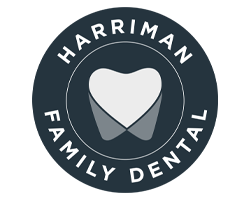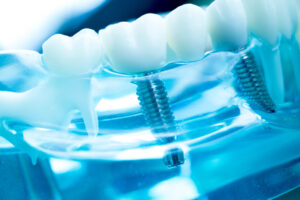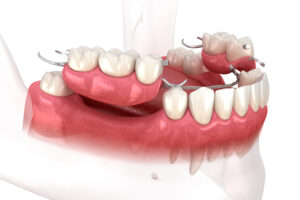Bonding, Veneers, or Crowns–What’s Better for Your Chipped Tooth?
Published on: June 7, 2021

If you have chipped one or more teeth, you might be unhappy with the results. Perhaps it’s just the appearance of chipped teeth that makes you reluctant to smile. Or maybe you’re finding it hard to bite and chew with your damaged teeth. You might even experience sensitivity or discomfort.
So you want to repair the damage. But what’s the best way to do it? Dental bondings, veneers, and crowns are all potential options. Here’s how you can tell which is best for your teeth.
When Dental Bonding Is Best
Dental bonding uses a spreadable composite material to repair damage to your teeth. Bonding starts as a soft, putty-like material. It’s a combination of plastic and ceramic. This is spread on the damaged area and hardened using a special curing light. This process might be repeated a few times to ensure maximum hardness and proper volume. Then it’s polished to give an attractive, natural appearance.
Dental bonding is best for minor chips. It works best when it’s not going to be put under too much force. Dental bonding also has the benefit of being quick and inexpensive, so it works well as an emergency restoration or as a temporary solution while you consider long-term options.
When Veneers Are Best
Dental veneers, sometimes called porcelain veneers, are thin shells of advanced ceramic that are bonded to the front and sometimes top of your teeth. They can [link id=’50160′ text=’do more than repair a small chip’]: they can build up a small tooth, whiten teeth, and even reshape a tooth to make it appear straight.
Veneers are best if you are looking for a highly attractive long-term solution to a minor chip. They are also great if your damaged tooth is crooked or rotated and you want to make your smile look straight. With veneers, you can easily choose to give yourself a smile makeover rather than just repair the one damaged tooth.
Veneers are as strong as your natural enamel, so they can be used in situations where you’re building up a small or badly damaged tooth. With veneers, you can bite and chew normally. Don’t worry: they’re not fragile. They used to be made of porcelain, but the advanced ceramics used now can stand up to anything your natural teeth can.
When a Dental Crown Is Recommended
A dental crown is sometimes called a cap because it caps the visible portion of your natural tooth, completely covering the entire visible surface. Ideally, the edge of the crown should be at or even a little below the gum line.
Dental crowns require us to remove a significant amount of tooth enamel, so we don’t want to use them when they’re not necessary. However, some situations call for a dental crown. You likely need a dental crown if your chipped tooth is highly sensitive to temperature and pressure. We might also recommend a dental crown if the structural integrity of your tooth is compromised.
Sometimes, though, even a dental crown might not be enough. If the inner chamber of the tooth, called the pulp chamber, has been exposed, it might be infected and would need to be cleaned out with root canal therapy. Other times, a crack might penetrate so deep into the tooth that a crown won’t hold the tooth together. Then the tooth would need to be extracted and potentially replaced with a dental implant.
Need to Repair a Chipped Tooth in Harriman?
Do you have one or more chipped teeth that you would like to repair? From our office in Harriman, we serve patients from across the Central Valley and Orange County, NY. Please call (845) 783-6466 today for an appointment with a dentist at Harriman Family Dental.



